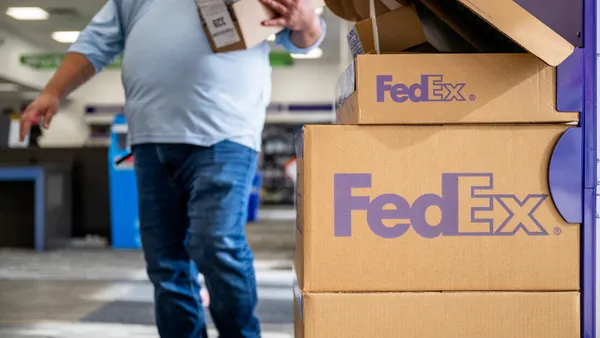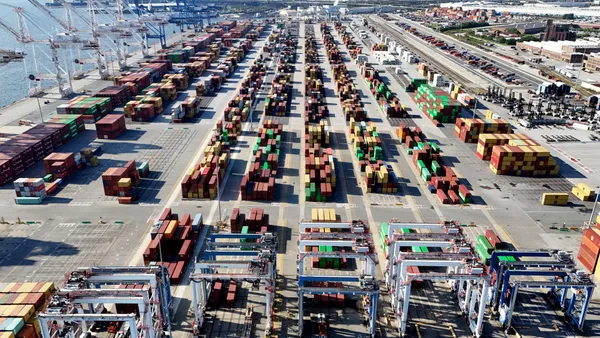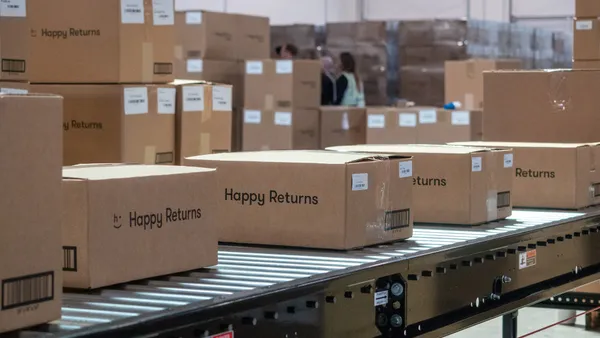Dive Brief:
- In a survey of more than 3,700 carriers in North America, 74% said they plan to add trucking capacity, with many citing a low availability of drivers as having the greatest impact on their business.
- With increased demand from shippers, a majority of carriers said revenue has grown by more than 5%, according to the survey conducted by Transporeon and released at Edge 2018, the Council of Supply Chain Management Professionals' (CSCMP) conference in Nashville, Tennessee.
- The survey recommended shippers achieve a status of "shipper of choice" by "scheduling realistically, minimizing empty miles and paying your carriers sooner."
Dive Insight:
Shippers and carriers alike recognize the growing pains of rising freight demand. Many shippers are going to market earlier to secure freight transport and a majority of carriers plan to add capacity.
"In terms of equipment, the solution is relatively simple — buy more trucks," Transporeon's survey noted. And economic data show carriers are doing just that. Class 8 truck orders reached an all-time high of 52,400 units in August, according to FTR.
Purchasing more trucks doesn't necessarily get to the root of the problem, however. "The pinch point right now is drivers," Ed Moran, managing director of Transporeon, told Supply Chain Dive at Edge 2018.
Along with demographic shifts in the workforce, "there's more scrutiny on how [truck drivers] manage their own business with hours of service and the ELD (electronic logging device) mandate," Moran said, contributing to more drivers leaving the industry than entering it.
Before the mandate took effect, supply chains assumed a trucker could legally drive 500 miles in one day, according to Transporeon's survey. But with ELD's tracking hours, the limit is closer to 450 miles. "That means same-day shipments suddenly became next-day shipments for many shippers," the survey said.
The strain on the market has forced spot rates up, but contract rates haven't followed the same pattern. Carriers said in many instances they have had the ability to raise rates but decided against doing so.
"They have these long-term relationships with shippers," Krishna Gilligan, manager of marketing for North America at Transporeon, told Supply Chain Dive. "They weren't going to gouge them."













